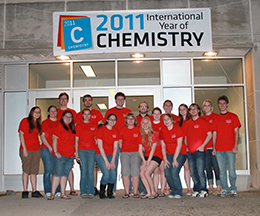 In September, IUP’s student chapter of the American Chemical Society was recognized as an outstanding chapter by the national ACS.
In September, IUP’s student chapter of the American Chemical Society was recognized as an outstanding chapter by the national ACS.
Not only will the chapter be honored at the national meeting March 25 – 29 in San Diego, but they are spotlighted in the February/March 2012 issue of inChemistry magazine.
And they are REALLY in the spotlight!
In addition to a great photo of the students in the chapter, the publication has a full-page of Q&A about the chapter activities and an interview with Professor Nathan McElroy, the chapter’s advisor for the past six years.
The article showcases many of the chapter’s projects and initiatives. This group offers free chemistry tutoring four nights a week, raises funds with weekly sales of hot dogs and T-shirts and uses these funds to make an annual donation of $1,000 to a local elementary or high school science program. The group also participates in local science fairs and recruiting events, including National Chemistry Week at the Carnegie Science Center in Pittsburgh.
McElroy, who is an IUP alumnus, was secretary of the Chemistry Club as a student. When he returned to IUP as a faculty member, he said, “I asked to become the advisor.”
When asked about advice for new club advisors, he suggested, “Don’t underestimate your students’ creativity.”
Clearly, it’s a formula that works.

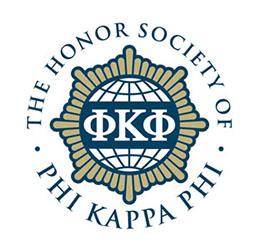 Phi Kappa Phi, the oldest, largest, and most selective all-discipline honor society in the nation, honored its IUP chapter as a “Chapter of Excellence” in November.
Phi Kappa Phi, the oldest, largest, and most selective all-discipline honor society in the nation, honored its IUP chapter as a “Chapter of Excellence” in November.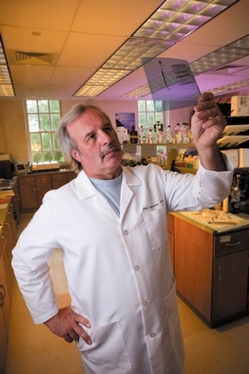 John Kopchick ’72, M’75 recently learned that Ohio University’s Heritage College of Osteopathic Medicine’s newest endowed research chair would be named for him.
John Kopchick ’72, M’75 recently learned that Ohio University’s Heritage College of Osteopathic Medicine’s newest endowed research chair would be named for him. 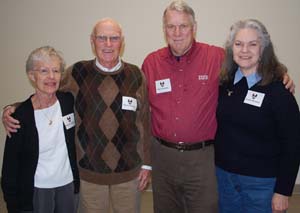
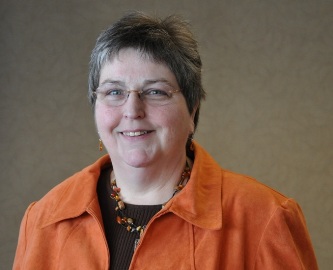 Adolescent bullying, for good reason, is a hot topic, and one of IUP’s professors is in the forefront of the discussion.
Adolescent bullying, for good reason, is a hot topic, and one of IUP’s professors is in the forefront of the discussion.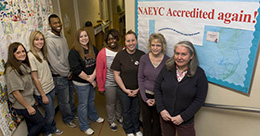
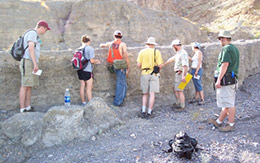
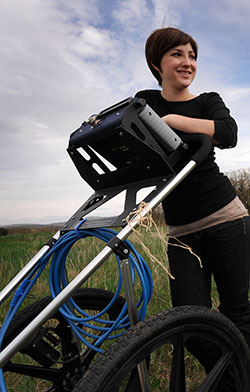 For example,
For example, 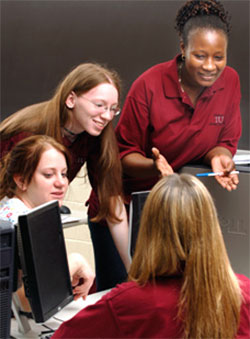 For almost a decade, IUP has been one of the leading universities in the nation focusing on the issue of cybersecurity, or information assurance. Information assurance addresses all of those issues surrounding security of computers and data. IUP is one of fewer than one hundred universities in the nation recognized by the National Security Agency and the Department of Homeland Security as a national Center for Academic Excellence in Information Assurance. One of the things that sets IUP’s program apart is that it combines the disciplines of criminology and computer science, offering a unique perspective on this fascinating field of study.
For almost a decade, IUP has been one of the leading universities in the nation focusing on the issue of cybersecurity, or information assurance. Information assurance addresses all of those issues surrounding security of computers and data. IUP is one of fewer than one hundred universities in the nation recognized by the National Security Agency and the Department of Homeland Security as a national Center for Academic Excellence in Information Assurance. One of the things that sets IUP’s program apart is that it combines the disciplines of criminology and computer science, offering a unique perspective on this fascinating field of study.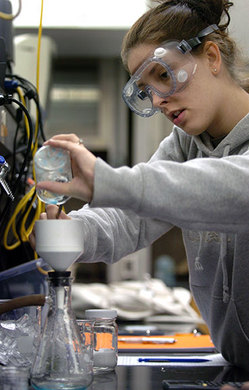
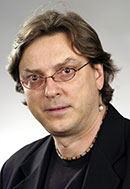 IUP Psychology professor
IUP Psychology professor